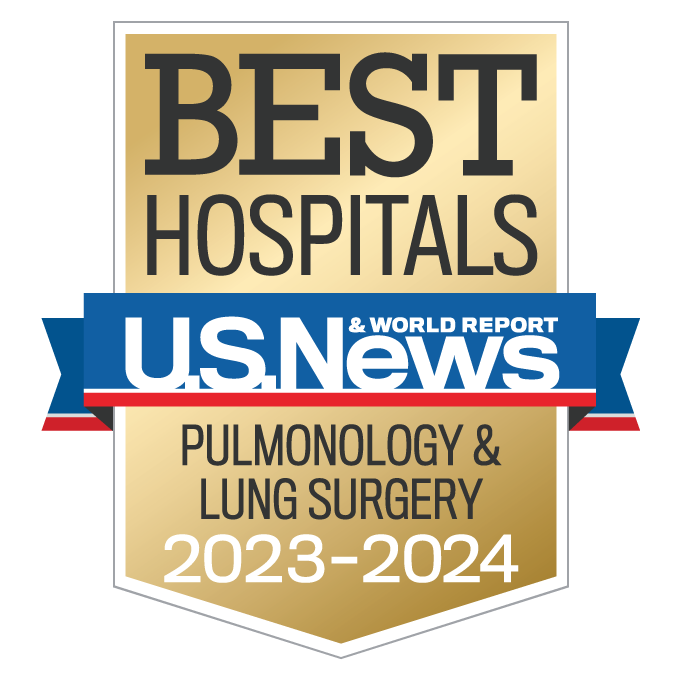Pulmonary Rehabilitation
The first to offer pulmonary rehabilitation in San Diego in 1968, UC San Diego Health is a leader in the management of chronic respiratory conditions.
Our nationally recognized program includes a team of respiratory therapists and lung specialists who are dedicated to improving the quality of life for people with chronic lung disease.
Our program is certified by the American Association of Cardiovascular and Pulmonary Rehabilitation (AACVPR), which recognizes our commitment to providing high-quality patient care and services.
What Is Pulmonary Rehabilitation?
Uniquely tailored to the patient, pulmonary rehabilitation offers an evidence-based, comprehensive approach to improving the psychological and physical condition through psychosocial support, education and physical conditioning.
While pulmonary rehabilitation is not a replacement for medical treatment or lung surgery, it is a central component in the management of a chronic respiratory condition.
What Are The Benefits?
Pulmonary rehabilitation helps prevent exacerbations and optimize your ability to function independently.
It also helps:
- Improve shortness of breath
- Improve quality of life
- Improve physical abilities and exercise tolerance
- Reduce hospitalizations
- Improve depression
People who participate in a pulmonary rehabilitation program have a lower incidence of hospitalization than those who do not.
Who Can Participate?
You must be referred to pulmonary rehabilitation by your doctor. If you're interested, have your doctor fax your paperwork to: 619-543-7345.
You can participate in pulmonary rehabilitation if you are:
- Diagnosed with a chronic lung disease.
- Currently under the care of a physician
- Able to walk around
Being ambulant (able to walk around) is important, as pulmonary rehabilitation involves an individually tailored exercise program in an outpatient clinic (see Exercise Training below).
Insurance Coverage
Rehabilitation is covered by most medical insurance plans, however, some plans require authorization prior to treatment.
Medicare has very specific coverage rules. Some follow-up contact with your plan may be necessary before scheduling an initial evaluation.
Chronic Lung Conditions We Treat
Almost everyone with a breathing problem can benefit from pulmonary rehabilitation, even those with an advanced stage of lung disease or awaiting a lung transplant. You can benefit from pulmonary rehabilitation if you have one of these conditions.
Starting Rehab
Following your physician referral, an initial evaluation will be scheduled and one of our pulmonary specialists will help determine your short- and long-term goals, and the best course of treatment.
The initial consultation involves review and assessment of your:
- Medical history (to determine if you can benefit from pulmonary rehabilitation).
- Lung function test results (your physician can fax this to 619-543-7345).
- Physical abilities and oxygen levels (measured with a noninvasive oxygen monitor).
- Symptoms (e.g., shortness of breath, cough, fatigue) and medications.
- General nutrition, weight and height.
Your All-Inclusive Review
Once our comprehensive evaluation is completed, we will meet with you to discuss our summary of your results in person and provide an outline detailing the next steps.
Lung Disease Education and Management
Pulmonary rehabilitation includes exercise and education classes to improve your knowledge and understanding of your lung disease and prescribed treatments. Taught by respiratory therapists, these classes pass on valuable information to help support lasting healthy behaviors to sustain a high quality of life.
You’ll learn how to:
- Avoid lung irritants (such as air pollution)
- Maintain healthy behavior (e.g., exercise, nutrition)
- Reduce your reliance on expensive medical resources
- Best cope with your disease
- Control breathing difficulties
- Use medications properly
- Utilize oxygen therapy
Program Length
Pulmonary rehabilitation may include several weekly to bi-weekly sessions, depending on your individual needs and medical insurance coverage. Six to 12 weeks of therapy is generally recommended to improve symptoms of shortness of breath, muscle fatigue and increase exercise abilities. Treatment sessions are provided in an outpatient clinic.
Exercise Training
Exercise training is a critical part of pulmonary rehabilitation. Our professionals will perform an assessment of your symptoms, determine which exercise level is appropriate for you, and tailor a physical activity plan to fit your needs.
When done correctly under the supervision of our pulmonary rehabilitation team, exercise helps reduce the negative effects of inactivity, such as deconditioning of arm muscles. You'll learn how certain breathing techniques during exercise can help mitigate shortness of breath.
Other benefits of regular exercise include:
- Improved sleep quality
- Improved circulation
- Increased strength and muscle tone for better balance
Leg exercise training is vital since walking is necessary for most daily living activities. Arm exercises are also beneficial and help improve muscle strength and endurance to carry out daily and recreational/leisure activities such as washing the dishes and driving.
Our team will show you how to implement a home exercise program so you can continue maximizing your ability to function on your own.
Breathing Techniques
Our respiratory therapists will teach you breathing techniques and strategies that can help you manage shortness of breath in daily living.
Understanding why you feel short of breath can help you make life-lasting changes that can make you more independent. For many, it may even help lessen feelings of panic and anxiety.
Group Support and Counseling
It’s not uncommon for people with a chronic lung condition to experience high stress and have feelings of depression, panic or anxiety.
Pulmonary education often includes group support sessions to address the lifestyle changes that result from progressive shortness of breath and physical limitations. In a support group setting, you'll have the opportunity to speak to others who are going through experiences similar to yours.
Depression and anxiety is often underdiagnosed in patients who have progressive shortness of breath and chronic lung disease. Our lung specialists will assess your condition to determine if you need a referral for additional support.
Want to Quit Smoking?
We can help.
Whether you're ready to quit or just thinking about it, learn more about smoking cessation or call 800-NO-BUTTS.
